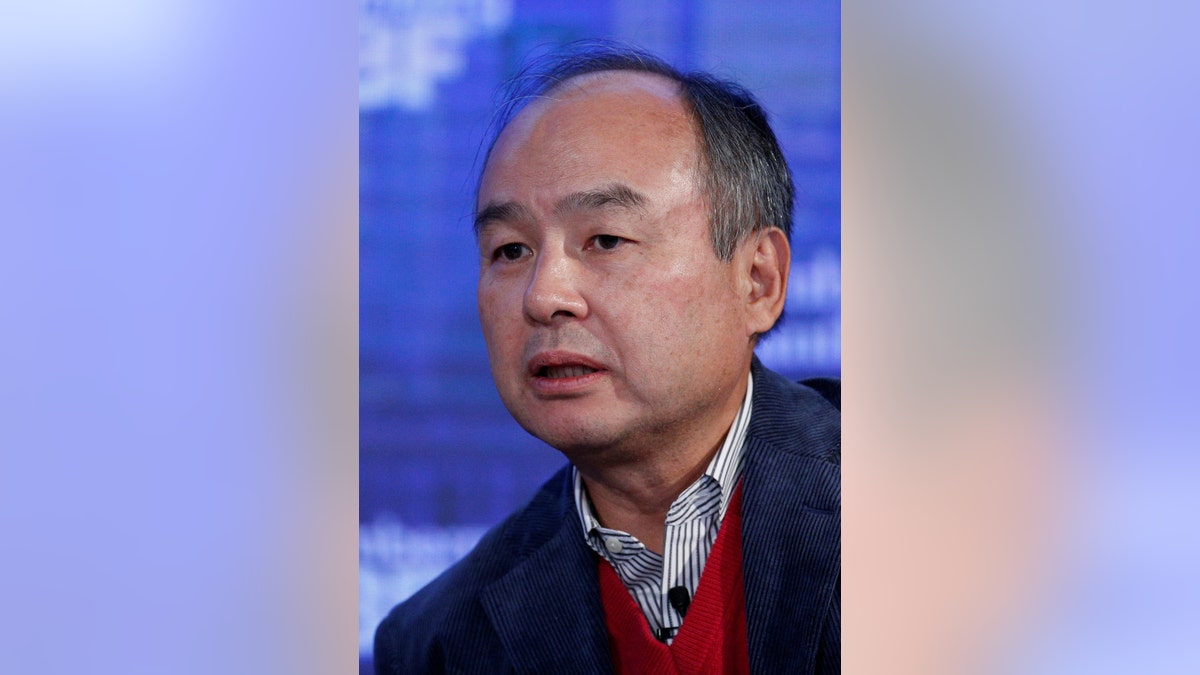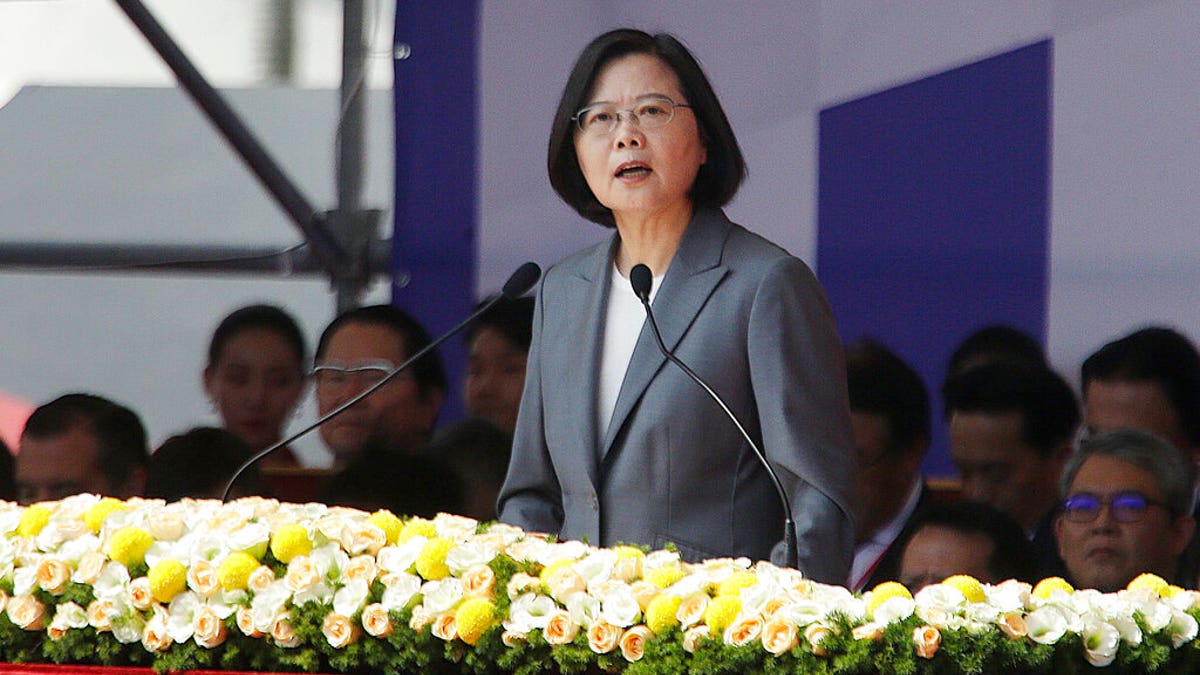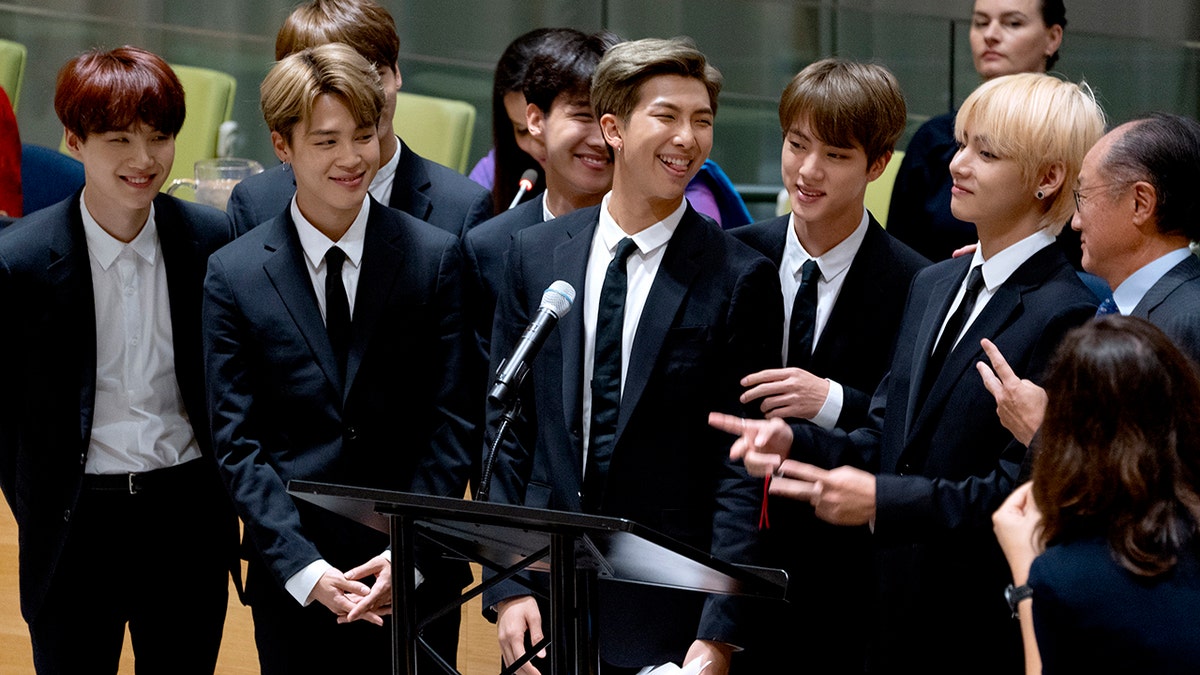Hundreds of thousands participate in first government-approved march in Hong Kong since August
Christina Coleman reports.
President Trump continued his disruptive approach to diplomacy and pushed back on China trade practices in 2019, as the on-again-off-again U.S.-China trade war sent U.S. equity markets on a volatile ride to record levels.
If on nothing else, Trump has united partisan Washington on the need to rebalance the U.S.-China economic relationship. How that relationship evolves in the year ahead will impact Main Street America and the 2020 presidential elections.
So, who was up and who was down in Asia in 2019? Here’s our assessment:
NEWT GINGRICH: IN 2020, THESE 5 THINGS WILL MAKE BIG NEWS
WORST YEAR: The People of Hong Kong—six months of turmoil and the worst may be yet to come
The world has been transfixed this year by televised battles between Hong Kong protesters and police in tear-gas filled streets. What’s at stake? The future of the more than 7 million people who call this special administrative region of China home.
CLICK HERE TO GET THE OPINION NEWSLETTER
Ongoing protests were sparked by a now withdrawn bill that would have allowed people arrested in Hong Kong to be sent to Communist China.
More from Opinion
With countries issuing travel warnings for Hong Kong, visitors' numbers are plummeting. Schools have been closed and universities under siege. Hong Kong is now in a recession, its first in a decade. And while Trump has signed into law the Hong Kong Human Rights and Democracy Act of 2019, the worst may be yet to come as the promise of “One Country Two Systems” fades and Beijing increasingly intervenes in this self-proclaimed “Asia’s World City.”
Sadly, whether pro-China, anti-China or somewhere in between, the Hong Kong people are our biggest losers for 2019.

SoftBank Group Corp. Chairman and CEO Masayoshi Son speaks at the Bloomberg Global Business Forum in New York City, U.S., September 20, 2017. REUTERS/Brendan McDermid - RC16E8410BC0 (Masayoshi Son. (Credit: Reuters))
BAD YEAR: Masayoshi Son—from Uber to WeWork, the SoftBank founder’s magic fades
It’s just not working anymore. Since unveiling his $100 billion Vision Fund in 2016, Japan’s billionaire investor and Softbank founder Masayoshi Son has dazzled, becoming one of the world’s most active tech investors.
Investments in unicorns and would-be unicorns — startups valued at $1 billion or more — would, he and his investors envisioned, replicate the success Son had achieved with a storied early investment in Alibaba. There, a $20 million investment in Alibaba turned into stock worth more than $120 billion.
But in a bad year for Son, questions have grown about murky governance, elusive profits and the valuation of investments in companies ranging from ride-sharing company Uber to co-working space provider WeWork. In one month, WeWork cut its valuation from $47 billion to $10 billion, and in October, SoftBank stepped in, forcing out WeWork Chairman Adam Neumann with a $1.7 billion payout, and reducing the company’s valuation to $5 billion.
What’s next for Son and Softbank? Seems a period of reflection and restraint is due, with Fortune reporting that he has told tech startups that “knowing your limitations will help unleash limitless possibilities.”
MIXED YEAR: Trump & Xi—troubles at home & abroad for the world’s most powerful leaders
2019 was a mixed year for the two most powerful political leaders in the world.
By year-end, Trump had become only the third US president to be impeached and worries reemerged about whether a mercurial North Korean leader might try to crash Trump’s Indo-Pacific strategy. Yet, a strong economy continues to augur well for Trump in the 2020 presidential elections.
Across the Pacific, China’s President Xi Jinping in 2019 solidified his role as the strongest Chinese leader in decades. This though hasn’t prevented growing pushback over China’s treatment of the Uighurs and other predominantly Muslim minorities, accusations of debt diplomacy over Xi’s signature Belt and Road Initiative, increasing blowback over Chinese economic nationalism highlighted by a furious response to a pro-Hong Kong Tweet by a NBA general manager, and most critically, a slowing Chinese economy.
An end-of-year, “Phase One” U.S.-China trade deal has at least brought a pause to the ongoing U.S.-China trade war, offering up benefits to the U.S. and Chinese consumers worried over tariffs, and perhaps set the stage for a comeback and better year in 2020 by both Trump and Xi.

Taiwan President Tsai Ing-wen delivers a speech during National Day celebrations in front of the Presidential Building in Taipei, Taiwan, Thursday, Oct. 10, 2019. In the national day address, President Tsai said China was threatening the island "nonstop" and posing a major challenge to regional peace and stability. (AP Photo/Chiang Ying-ying)
GOOD YEAR: Tsai Ing-Wen—Taiwanese president becomes the face of “Good China”
From Indonesia’s President Joko “Jokowi” Widodo, easily reelected in May 2019, to Japan’s Prime Minister Abe Shinzo, who became Japan’s longest-serving prime minister in November, Asia has its share of leaders who found 2019 to be very much a good year.
No one’s fortunes changed as much for the better though than Taiwan’s President Tsai Ing-Wen. At one point, her prospects for re-election seemed slim, particularly after her Democratic Progressive Party suffered a disastrous defeat in the 2018 local elections.
But as the Jan. 11 general election approaches, Tsai is riding high in the polls, thanks in no small part to the unrest in Hong Kong and to a resilient Taiwan economy that continues to roar along, benefiting from growing foreign direct investment and the "reshoring" of Taiwan businesses, amid U.S.-China trade tensions. The Taiwan stock exchange is now up some 25 percent since the start of 2019. Tsai also won international attention when Taiwan approved same-sex marriage in May, making history in Asia.
As the year ends, Tsai's prospects for re-election never looked better.

FILE - In this Sept. 24, 2018, file photo, members of the Korean K-Pop group BTS attend a meeting at the U.N. high-level event regarding youth during the 73rd session of the United Nations General Assembly, at U.N. headquarters. A Japanese broadcaster canceled a live TV appearance of the Korean band BTS after a photo went viral of a band member wearing a T-shirt showing an atomic bombing juxtaposed with the celebration of Korea's liberation from Japan after World War II. (AP Photo/Craig Ruttle, File)
BEST YEAR: BTS—beyond politics, a K-pop band rules
Amid slowing economies and political divisions, good news was hard to find in much of Asia in 2019. A clear exception was the K-pop sensation known as BTS that has also made its presence felt across the U.S. The seven-member Korean boy band was firmly established as a dominant social media presence and worldwide phenomenon in 2019.
CLICK HERE TO GET THE FOX NEWS APP
BTS’s wildly successful, extended “Love Yourself World Tour” filled sold-out stadiums across Asia, the Americas, Europe and the Middle East, including the Rose Bowl in Pasadena and London’s Wembley Stadium. Music awards and commercial success accelerated, with accolades from MTV, Billboard and the American Music Awards.
With the group contributing more than $4.65 billion to South Korea’s GDP, according to the Hollywood Reporter, little wonder BTS earned a Time cover story and a place on the magazine’s list of the 100 most influential people for 2019. Trump might well have met rival boy band EXO on his own trip to Seoul in 2019, but it is BTS that wins our Best Year in Asia 2019.
CLICK HERE TO READ MORE BY CURTIS S. CHIN
Jose B. Collazo is a Southeast Asia analyst and project consultant at RiverPeak Group. Follow them on Twitter at @curtisschin and @josebcollazo.





















